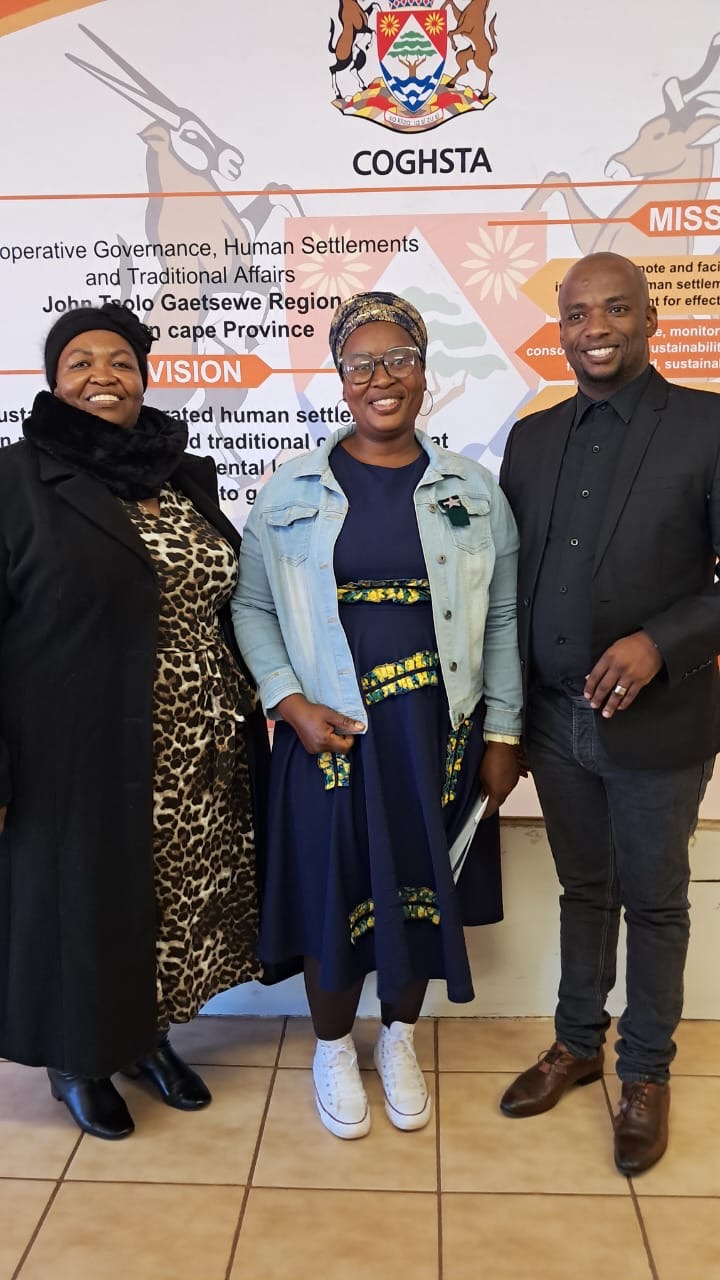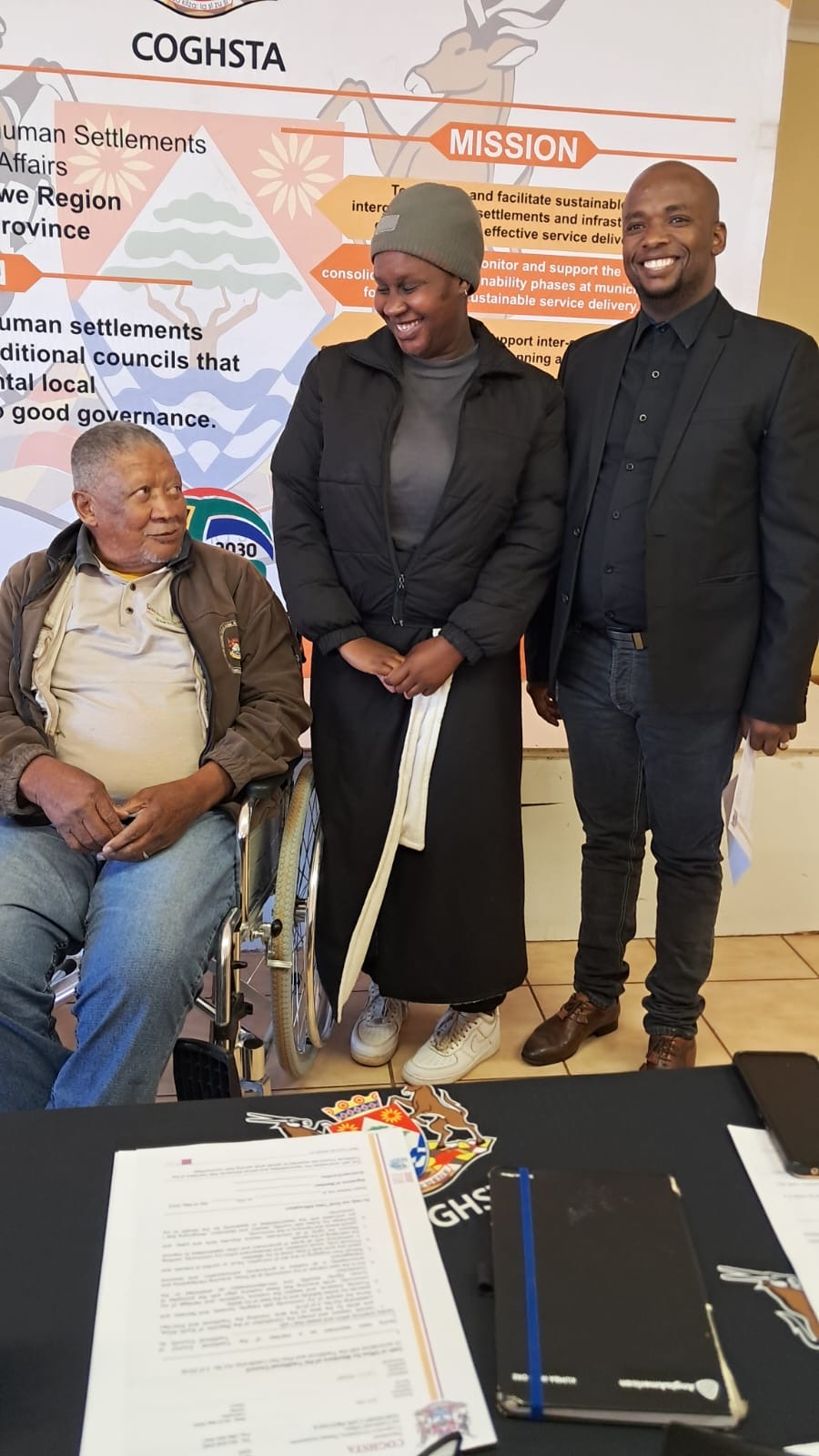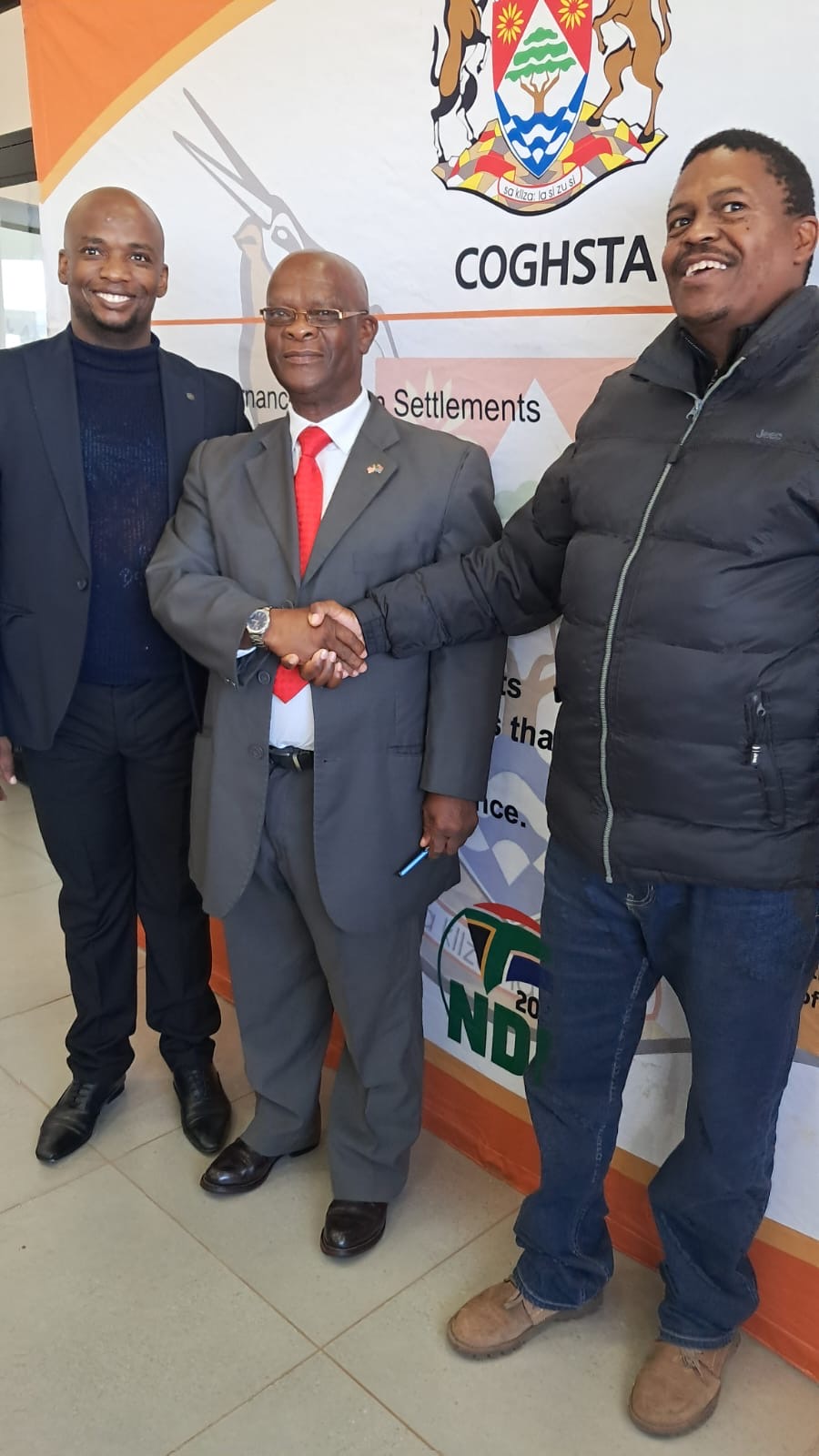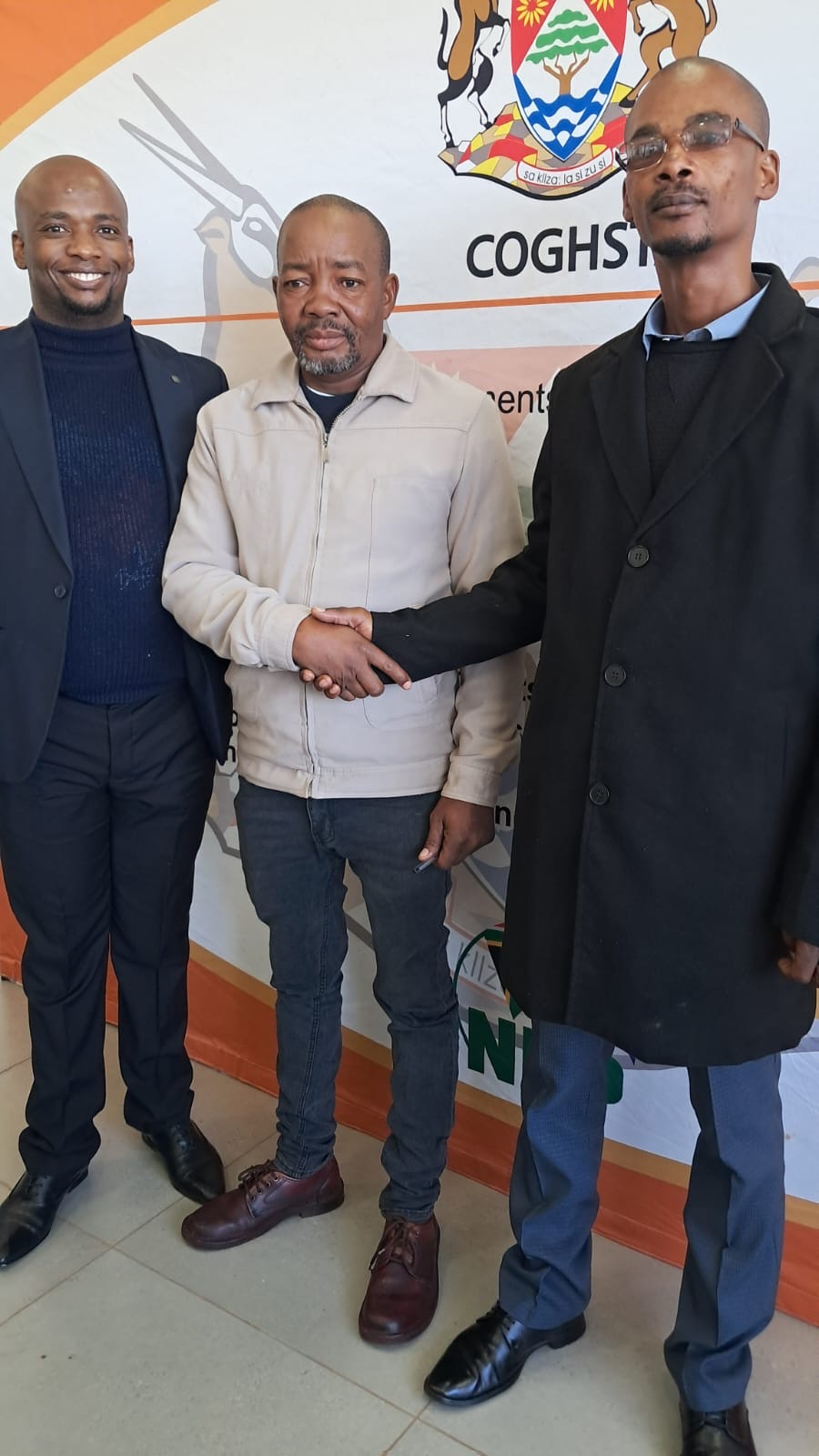
This follows the proclamation of regulations governing traditional councils and the resolution of a national dispute concerning the formula for determining council composition—a matter previously contested between the Minister and traditional leaders across the country.
Despite these challenges, the Northern Cape has emerged as one of the first provinces to successfully complete the election of traditional council members in February 2025. All eight traditional councils have since been formally established and gazetted. The final outstanding step was the induction of council members before they could officially assume their roles.
To this end, COGHSTA conducted a province-wide induction programme from 20–23 May 2025, visiting tribal offices throughout the John Taolo Gaetsewe Region. During this period, all eight traditional councils were inducted at their respective locations.
The induction was attended by all traditional leaders from the region, who expressed sincere gratitude to the Department for its active role in ensuring that the newly established traditional councils are empowered and equipped with the necessary capacity to effectively carry out their duties within their respective jurisdictions.
The programme was led by Mr. Peter Toto, Director for Traditional Affairs, and Mr. Tsogang Cogang, COGHSTA’s Regional Director in the John Taolo Gaetsewe District. Their leadership and guidance ensured that council members were provided with clear, practical information on the legislative framework governing traditional leadership, as well as the roles and responsibilities expected of them.
This induction comes at a pivotal time, as traditional councils are now expected to play a significant role in processing tribal resolutions that support service delivery within their communities.
Importantly, all eight traditional councils were established with inclusive representation, comprising members of royal families, community representatives, women, youth, and persons living with disabilities. This inclusivity reflects the Department’s ongoing commitment to participatory governance and social cohesion within the institution of traditional leadership.




